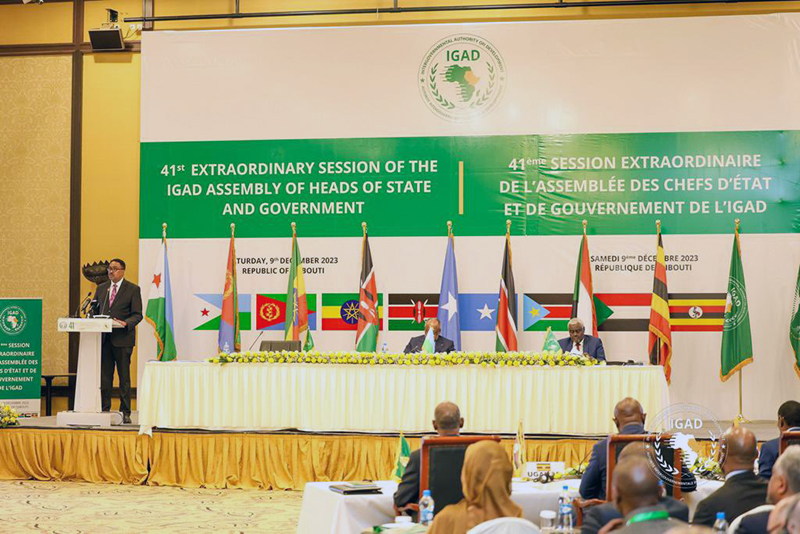
The Ninth Month of War: Image or Script?
Abdullah Rizk Abu Seimaza
One of the most significant achievements of the emergency IGAD summit in Djibouti, which concluded its activities last weekend, as the senseless war approaches its eighth month, is represented in saving the ongoing negotiation process in Jeddah between the armed forces and the Rapid Support Forces. This comes after another collapse in its latest phase, with the failure of the negotiating parties to agree on a ceasefire, leading to a period of escalation and counter-escalation in the hostile actions that civilians are suffering from, primarily, extending beyond the holiday season to the anticipated return of Western mediators to Jeddah.
The summit, proposed by General Abdel Fattah al-Burhan, the head of the Transitional Sovereignty Council and the Commander-in-Chief of the Armed Forces, during his earlier meeting in Nairobi with the Kenyan President, William Ruto. After failing to attend the climate summit hosted by Dubai due to complications in Sudans relationship with the UAE following explicit accusations by General Yasser al-Atta, the Deputy Commander-in-Chief, of supporting the Rapid Support Forces.
It was planned for al-Burhan to meet on the sidelines of the summit with IGAD leaders to discuss ways to stop the war in Sudan. However, Djiboutis successes were not limited to that. The emergency regional summit, attended by high-profile global figures, managed to lay the foundation, based on what was agreed upon in Jeddah on May 11 and November 7, for a new agreement between the warring parties, pushing the efforts to stop the war a step forward. The summits outcomes were widely welcomed.
Apart from the controversial final summit statement that raised suspicions from the Sudanese Ministry of Foreign Affairs, the Executive Secretary of IGAD, Dr. Workneh Gebeyehu, summarized the essence of the summit before the controversial statement was issued. He tweeted on the Ex platform, stating that it achieved "a commitment from the Sudanese warring parties to hold an urgent meeting and agree on a ceasefire."
While General Mohamed Hamdan Dagalo, Hemeti, appeared to be in line with the summits decisions, especially regarding the proposed meeting between him and al-Burhan two weeks after the summits conclusion in Jeddah to finalize an unconditional ceasefire, the Sudanese Foreign Ministry, on behalf of al-Burhan, presented an unyielding image. In its statement denying the unconditional commitment to meet Hemeti, the statement, ending with non-substantive remarks, outright rejected the final statement. However, al-Burhan, in his address to the army in Shendi upon his return from Djibouti, did not touch upon the summit or its decisions, as if it had never happened, which may indicate a silent disagreement between him and his foreign ministry.
Therefore, the next two weeks of the ninth month of this senseless war will be dedicated to anticipating the al-Burhan-Hemeti meeting. But before that, they will also witness regional and international pressure on al-Burhan to adhere to his commitments and pledges to the summit. The Djibouti summit opened the door to hope and optimism once again after the failure of the last round of negotiations in Jeddah, leaving millions of war-weary Sudanese frustrated. Hence, the first half of the ninth month will also be devoted to urgent expectations: Image or script? War or peace?

